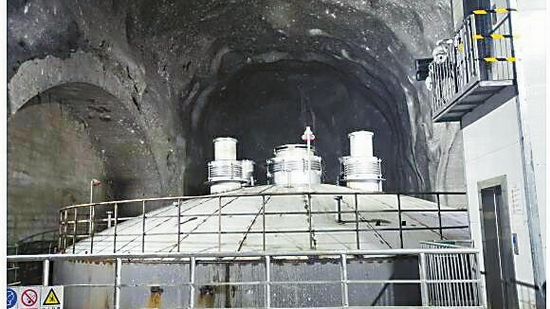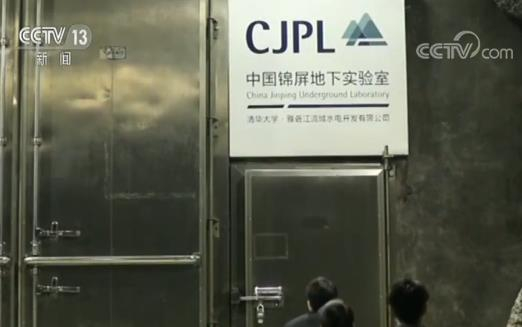

The second phase of CJPL is under construction /Credit: Sichuan Daily
The world's deepest lab in southwest China to study dark matter in the universe began its next round of infrastructural upgrade on Saturday.
The project, which will be conducted in the ultra-deep underground tunnel, is to install physical experiment facilities used for research in an almost radiation-free environment.
"It will not only benefit the research of dark matter but also the solar neutrino activities as well," said a lab scientist. Results are also expected to aid research in the disciplines of marine science, materials science and environment science.

CJPL /Photo via CCTV
Lying under 2,400 meters of rock, China's Jinping Underground Laboratory (CJPL)) is approved to be one of "National Major Science and Technology Infrastructure Projects" after China's FAST telescope, the fusion device —"Artificial Sun" and the electron-positron collider in 2016.
According to the Ministry of Science and Technology, the country will fund over 1 billion yuan (145 million U.S. dollars) for the infrastructure upgrade.
The opening ceremony of the project was held in the tunnel of Jinping Mountain, Sichuan Province, where the lab was located.
With the deepest rock coverage and minimum cosmic rays, the place is a perfect choice for dark matter research and for scientists in fields like particle physics, nuclear physics, astrophysics and cosmology to carry out experiments.
"Before the dark matter was found, the research was only limited to the recorded particles of matter in the existing cosmic model, which account for nearly 4 percent of the mass of the universe," Jing Mingkun, the lab researcher told the local media. "But actually, the proportion of the dark matter is about 26 percent. The research around it will definitely expand people's knowledge of our universe."
What will the project bring us?
Once it's done, the project will provide an underground radiation measurement platform with nearly zero cosmic rays. It will serve as a tool for the country to set its radiometric reference.
The project will also be an ideal place to conduct deep-earth physics experiments, and is expected to attract top scholars at home and abroad using cutting-edge facilities.
"There are plans within the deep underground astroparticle physics community to develop several large-scale facilities to address the important outstanding questions in our field using different techniques," Nigel Smith, director of Snolab, and a member of the CJPL international advisory committee, told Physics Today in an earlier interview.
"We need to have the capability to host the experiments. I think everyone is pleased about the expansion of the facility in China."
According to Xinhua, CJPL is in the second construction stage. In the future, eight experiment halls will be built, and the available underground experiment space will be increased from 4,000 cubic meters to 300,000 cubic meters, which can accommodate several large-scale deep scientific experiment projects at the same time.

Copyright © 2018 CGTN. Beijing ICP prepared NO.16065310-3
Copyright © 2018 CGTN. Beijing ICP prepared NO.16065310-3